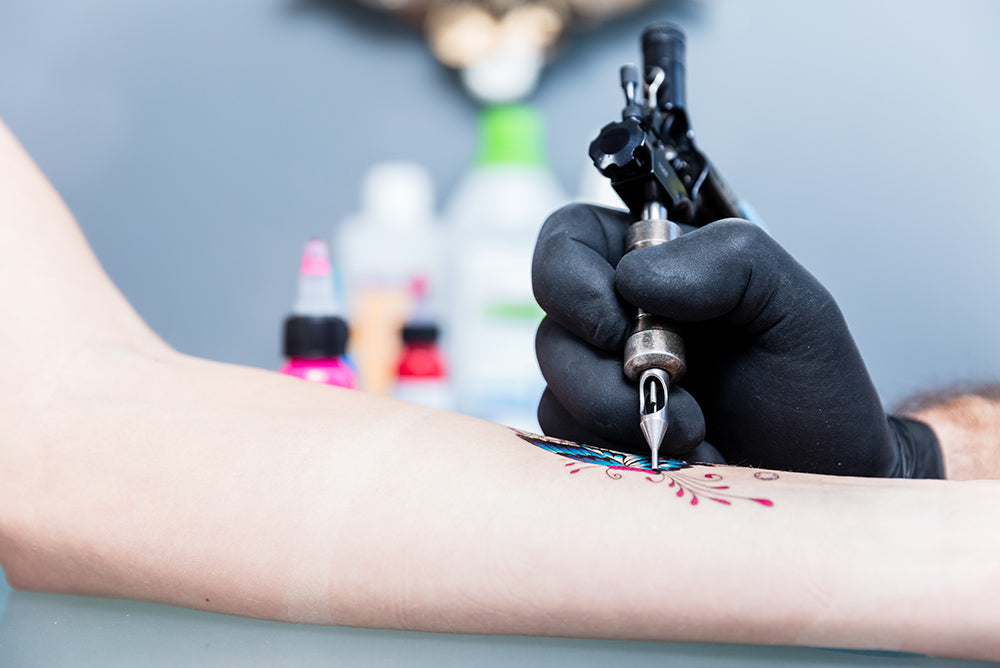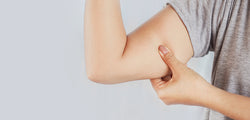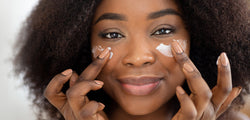
Learn the Basics of Tatoo Waxing
Table of Contents:
The concept of tatoo waxing makes a lot of sense when you consider that to get some professional ink laid down, artists prefer the skin to be hair-free and smoother than a baby's bum. The only problem is that the hair starts to immediately grow back a day or two after conventional razor shaving. This means that you will have to deal with bumps, a stubble and extreme discomfort even before the inked-up area has begun healing properly. This can open the door to a myriad of skin-related problems including persistent itchiness, infections and post-ink scarring.
Waxing (rather than traditional shaving), on the other hand, assists in keeping the tattooed patch hair and stubble free for at least a couple of weeks for the raw skin to heal without much discomfort.
Does Hair Grow Over Tattoos? Getting to the Bottom of It
At this juncture, it is likely that you may be wondering whether or not does hair grow over tattoos. The truth is that it does. And when that happens, it is not pretty so to speak. You see, at the end of the day having tattooed skin does not get rid or destroy your hair follicles, compared to say a relatively deep 3rd degree burn. Given enough time, hair can and will still grow over the inked surface which makes the freshly-tattooed patch vulnerable to a number of potential complications.
For one, you should be aware that shaving anywhere on your body stimulates the hair to grow back in a stubbly, rough and thick manner, even more than before. Add a shaved tattoo to that picture and you have an unsightly mass of irritation, infected bumps, redness and tons of inflamed skin to go around. This is the last thing anyone needs, especially not someone who is getting a tattoo for the very first time. Waxing just makes the whole process of getting a tattoo easy and less of a harrowing experience.
Similarly, another thing that you don't need when trying to heal freshly tattooed skin is ingrown hairs sprouting the next day or over the following couple of weeks. Since waxing is more efficient in getting rid of hair follicles and their strands than razor shaving, you can rest easy knowing that your skin will have plenty of time to heal before you start thinking about shaving again.
The Importance of Waxing Before a Tattoo
The importance and relevance of waxing before a tattoo cannot be overstated, really. So, if you are wondering, should I shave before tattoo? The answer is, 'Yes, you should.' And there are very good reasons for that.

- First, the best tattoo wax is a specialty type of formulated wax that can be used on almost all areas of the body (even the most sensitive areas) without stinging or irritation. Compared to shaving (which may not be ideal for some areas e.g the bikini), it makes sense to forego the razor for well-made wax.
- Secondly, specialty tattoo wax consists of an array of unique ingredients that may accelerate correct healing of your freshly inked-up skin after the application session. In other words, it is a win-win situation where you get rid of the hair and still reduce the recovery time needed to get over the tattooing procedure.
- The hydrating properties of the formulation used in tattoo wax implies that it is easier and more effortless to use compared conventional shaving. In fact, the entire process of hair removal is less daunting than when using a razor.
So, there you have it - three solid reasons why waxing before a tattoo is a wise choice.
Can You Wax Over a Tattoo?
Waxing over a tattoo may sound like an absurd idea but it has been proven to have a number of beneficial properties, especially if you plan on having your tattoos for sometime. For one, waxing with specialty wax like Maryann's Hardwax Beans can help brighten, exfoliate, and, overall, maintain the longevity of your ink. This can make your tattoos look better, brighter, and fresher in the long run.
So, can you wax over a tattoo? Indeed, yes you could. However, it is not as easy or straightforward as one would love to imagine. Given that tattooed skin is likely to be more sensitive or raw compared to unpunctured skin, you cannot use just any conventional wax. The formula must be nourishing, strategic, hydrating, strategic and yet gentle enough to wax tattooed skin. In other words, to answer the commonly asked question of, can you shave over a tattoo? The only caveat here is that one should not wax a tattoo until it is completely healed. Usually, 6 weeks ought to be safe enough for most people to pull it off although some might need even more time than that depending on how fast your skin can heal.
FAQ
1. What hurts more waxing or tattoos?
Most often than not, it depends on what type of waxing you are pursuing or attempting or area of the body under treatment. While aggressive hair removal techniques such as brazilian waxing will be more painful than a standard tattoo procedure, a leg wax using specially-formulated waxing beans will obviously hurt less than a standard tattoo.

2. Is waxing bad for tattoos?
No, of course not. On the contrary, waxing is an excellent way of exfoliating the skin, brightening it up and keeping it superbly rejuvenated to make the ink more visible. The only caveat here is that one should make sure that their skin (and tattoos) are 100% healed before attempting a waxing procedure. This lessens the chances of accidentally aggravating the skin before it has had the chance to heal properly.
3. Does waxing help tattoos?
Apart from making the tattoos look better and brighter, waxing with specially formulated beans is an excellent way of imparting crucially nourishing, hydrating and remedial dermatological ingredients to your skin. Otherwise, it is recommended to wax before undergoing a tattoo procedure as this reduces the risk of razor bumps and ingrown hairs interfering with the post-treatment healing process.
4. Is tattoo waxing real?
Yes, tattoo wax is a one-of-a-kind specialty wax that is optimized for use on all skin and hair types. The wax is also versatile enough for use on almost all body areas. Users have reported that tattoo waxing helps revive and brighten tattoos, in addition to getting rid of hair follicles. Either way, it is advisable to refrain from tattoo waxing until it is completely healed. The healing period can vary significantly from one person to another.

5. Should I shave or wax my tattoo?
Waxing is by far a better alternative to shaving using a safety razor or hair clipper. For starters, you won't have to deal with infected or itchy razor bumps afterwards. Secondly, waxing plucks the hair strands by the root which implies that it will take longer for it to grow back. Finally, waxing can help revive or brighten old tattoos by exfoliating the skin.
6. How many days before a tattoo can you wax?
You can and should wax your skin a day or two prior before undergoing a tattoo procedure. You shouldn't wait too long before that lest the hair grows back before the artist has inked up your skin and neither should it be too soon that the treatment patch is still raw.
7. Does waxing remove tattoo ink?
No, contrary to the common misconception, waxing does not remove tattoo ink. Rather, it can help your tattoos look brighter and better under the shimmering sun by exfoliating the dead skin layer covering them. What's more, waxing is a great way of removing excess unwanted hair that would otherwise obstruct the conspicuousness and detail of your inked up skin.
8. Can you get tattooed after getting waxed?
Yes, you can and actually should. It's a great idea to keep your skin hair-free before going for a tattoo procedure as this will allow the newly inked-up skin to heal without any discomfort such as itchy ingrown hairs or infected pus-filled razor bumps. Just make sure, though, that you leave enough time for the waxed patch to pacify (calm down) before starting the procedure. Under no circumstances should you tattoo on freshly waxed skin.













